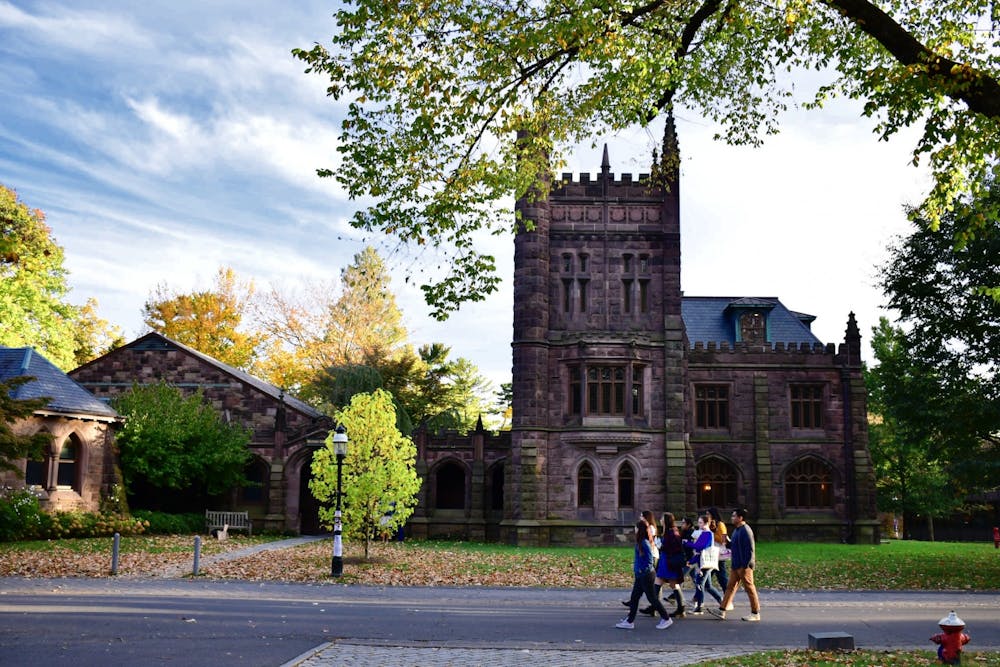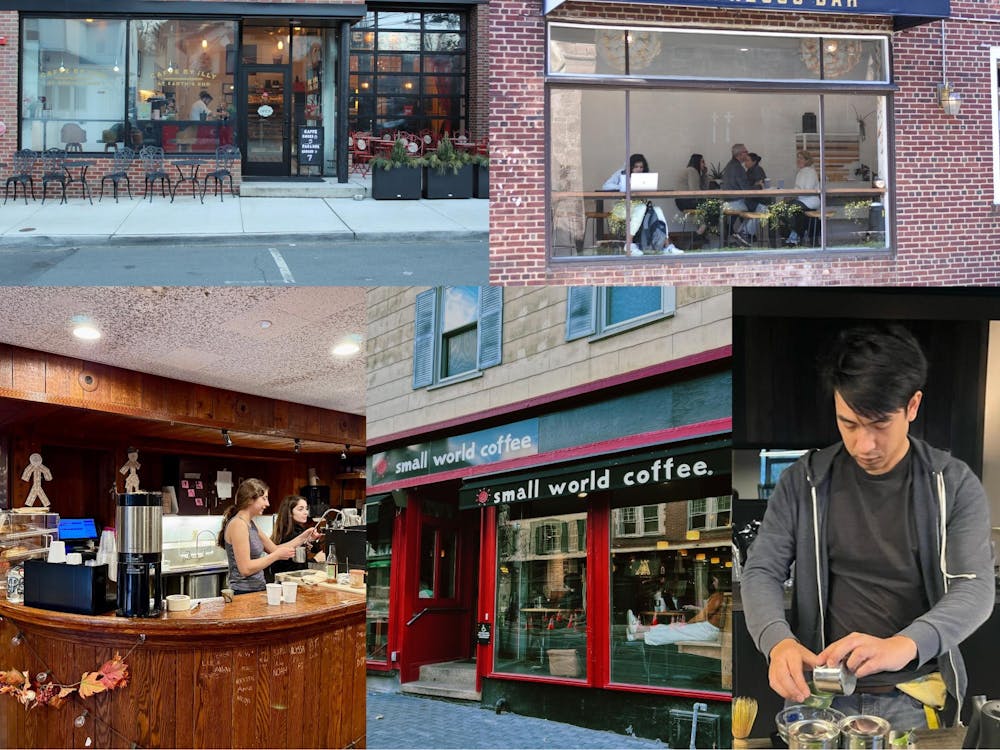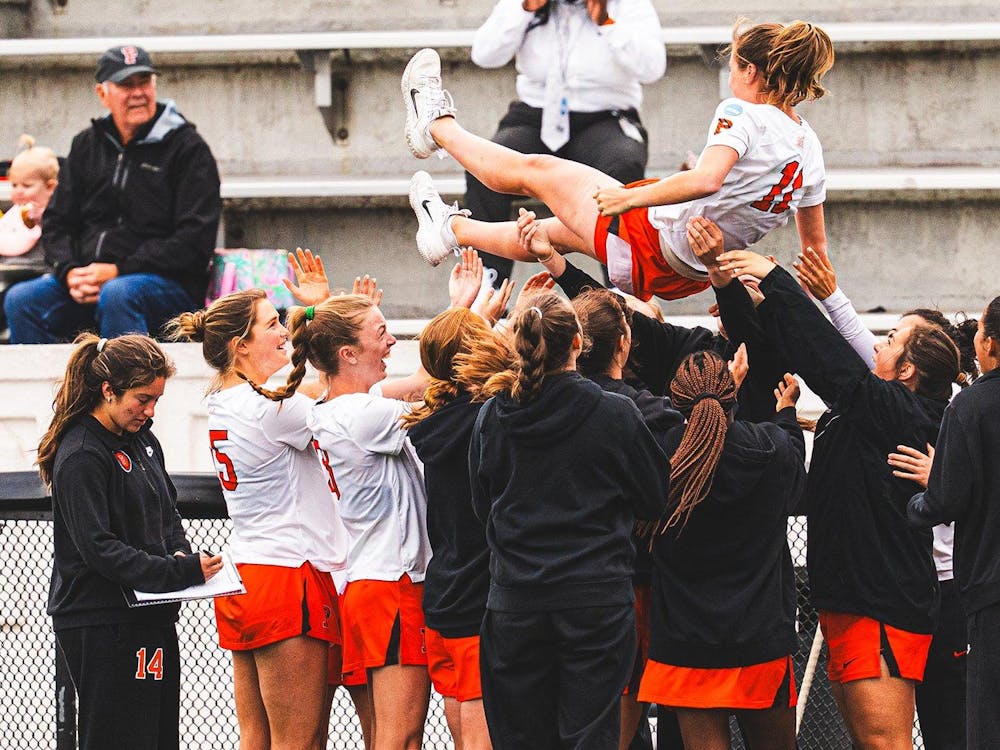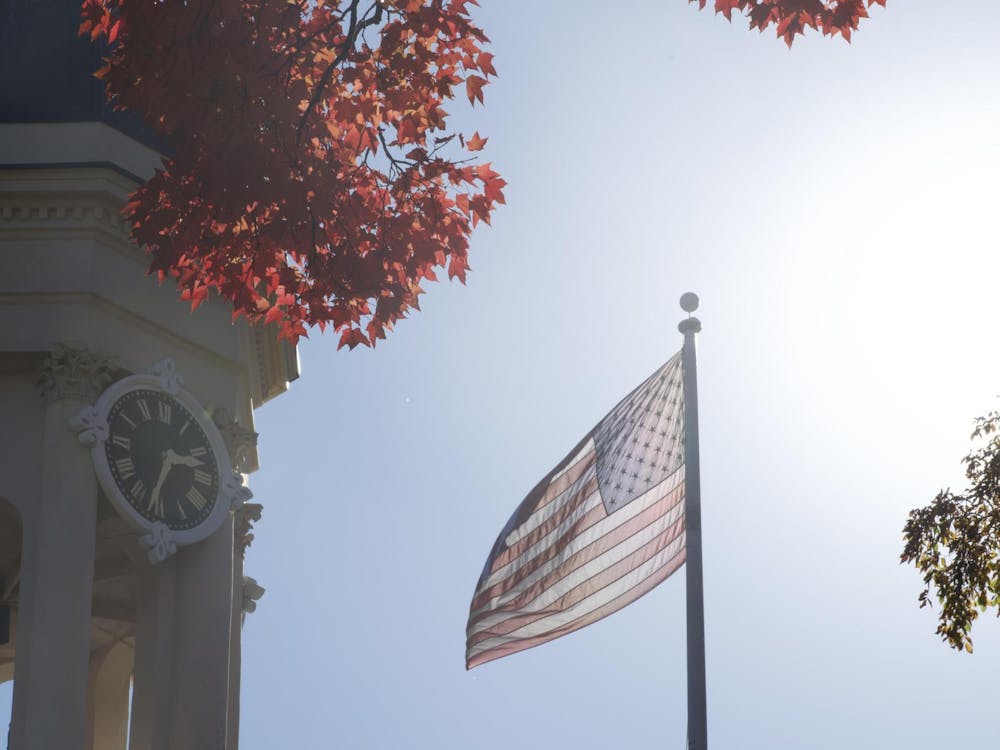After sundown on Tuesday night, nearly 100 students, faculty, and community members gathered in the Frist Multipurpose Room for the first community iftar during the month of Ramadan. Iftar is the evening meal during which Ramadan observers celebrate with friends and family after fasting from sunrise to sundown.
During Tuesday’s iftar, which was organized by the Muslim Students Association (MSA), crowds of people shared food and chatted as music played in the background. Several organizers of the event expressed well wishes for the holiday and invited everyone to partake in the festivities.
The Muslim holiday of Ramadan began on April 2 and will continue for a month, ending with Eid al-Fitr on May 2. For many students on campus, Ramadan is a time of faith, community, family, and gratitude.
Amina Anowara ’25, President of the South Asian Students Association (SASA), expressed the gratitude she felt while observing Ramadan. “Not being able to eat during the day, it really makes you appreciate the things that you do have because you’re without them for a short period of time.”
Some students explained the principle of equality underlying the holiday, a value consistent with the Islamic faith.
“Ramadan is a time where everybody at their root is considered the same person, whether you’re rich, poor, a different color or gender,” said Mohamed Alghondakly ’23, who observes Ramadan. “At the end of the day, everybody is fasting, so it brings us back to a place where we could all be considered equals, because in Islam, the major theme is that everybody’s considered equal.”
“I think it’s a time where you see the Muslim community gather like no other time in the year,” Kulsoom Ghias ’24, an MSA board member said in an interview with The Daily Princetonian.
“With the community, [fasting] altogether, there’s something about that that gives you the strength that you need,“ Ghias continued. “The religious devotion that you have throughout it makes it really special and even easier to do.”

Ramadan is usually celebrated with friends and family. While first-year students on campus may find it difficult to celebrate away from family for the first time, students expressed that there is a welcoming Muslim community available at Princeton.
Alghondakly explained how the Tuesday iftar created a sense of community.
“It feels like a real community. The thing is, a lot of people here are coming from places where they’re completely away from their family, and this gives us a chance to really build that community that we once felt when we were with our families,” Alghondakly said.
Nimrah Naseer ’23, Co-President of MSA, shared Alghondakly’s sentiments and explained how these feelings have informed MSA’s mission.

“When you’re home, you can break your fast with your family, but it’s really hard to recreate that on campus,” Naseer said. “We have been trying to create spaces, or just little notes to people to make them aware this is where people are breaking their fast.”
MSA continues to strive to build community on campus by hosting a variety of festivities.
Abdelhamid Arbab ’23, co-president of MSA, described that some of these planned activities incorporate the Princeton community at large. “There are two community iftars per week, and then we actually have a fast-a-thon coming up on April 13, where we’re inviting the entire campus to fast with us,” Arbab said.
Other events include a combination of daily informal prayers, as well as large group gatherings to break the fast as a community.
Observers of Ramadan will break their fast after sundown, which currently occurs at around 7:30 p.m.. Since most campus dining halls close at 8 p.m., several students reported needing to grab a to-go box.
“It’s just better to take a take-out box with me,” Anowara said. “It would be really nice if they could extend it [dinner time] a little bit just so I could go down and eat there instead of having to go earlier.”
When asked about accommodations for students observing Ramadan, the Princeton Dining Program responded, “Campus Dining accommodates students who are fasting by providing options for both Iftar (post-fast meal) and Suhoor (pre-fast meal). The dining program currently provides take-out containers, so students who are fasting may come in during the dinner meal period to prepare a take-out container for Iftar.”
Members of the Princeton community have expressed enthusiasm at being able to gather and break fast together without any restrictions for the first time since the outbreak of COVID-19.
“It’s important to note that it’s been two years because of the pandemic that we’ve not been able to gather together after breaking our fast,” Imam Khalil Abdullah, Assistant Dean for Muslim Life, explained. “I think that there’s a little bit of extra excitement and gratitude for our being able to gather again.”
Janny Eng is a News contributor for the ‘Prince.’ She can be reached at je3398@princeton.edu.








